Truthdigger of the Week: Salwa Bugaighis
The life and death of the Libyan lawyer and human rights activist are sober reminders of the brutal opposition that confronts humanity's advocates.The life and recent death of the Libyan lawyer and human rights activist are sober reminders of the brutal opposition that confronts humanity's advocates.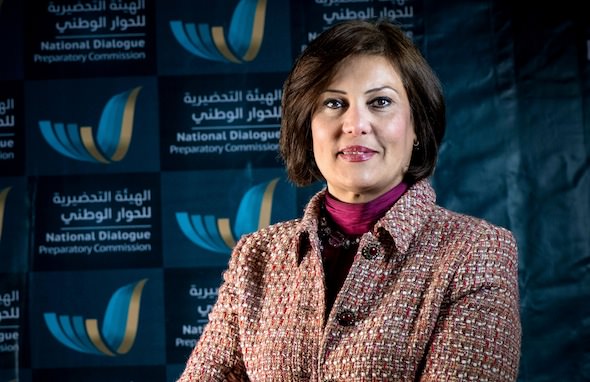
Every week the Truthdig editorial staff selects a Truthdigger of the Week, a group or person worthy of recognition for speaking truth to power, breaking the story or blowing the whistle. It is not a lifetime achievement award. Rather, we’re looking for newsmakers whose actions in a given week are worth celebrating.
The balance of conditions — social, economic, ecological — that enable peaceful and contented living among and between humans is fragile. We live in a decade of political uprisings in which the stability that undergirds peace, even its drastically imperfect, unevenly distributed form, is continuously upset around the globe. As our worldly prophets warn us, a major consequence of this disturbance is the unfurling, like ribbons from a box of party favors, of lotteries of violence through all of society’s layers. Innocents are murdered, including and especially those who try to order rather than inflame the chaos.
Articles appearing from June 26 on reported that Salwa Bugaighis, a human rights lawyer from the upper class in Libya, where a bloody, factional struggle broke out after dictator Moammar Gadhafi was toppled and killed in the country’s 2011 uprising, was among the latest casualties of this chaos.
The reports describe Bugaighis as “among the first to the barricades in Libya’s 2011 Arab revolution.” She served as an official in the National Transitional Council, Libya’s nascent rebel administration, but resigned amid accusations that it froze out female members. She was recognized as “perhaps the most charismatic figure in Libya’s women’s movement,” supporting a campaign that established minimum quotas for female lawmakers in parliament and opposing moves to require the wearing of hijabs. Her causes and efforts in their name brought her into conflict with the Muslim Brotherhood and Islamist extremists gaining power in the country.
Intolerance of her opposition appears to be the cause of her slaying Wednesday after her return home from voting in Libya’s general election. Reports say she was stabbed and shot through the head by gunmen who broke into her home in Benghazi. She was 50 years old and a mother of three. The assassins wounded a security guard and abducted her husband, Essam al-Ghariani. He remains missing as of this report.
Bugaighis spoke by phone with a Libyan TV channel earlier in the day about fighting near her neighborhood. Militants had attacked army troops deployed near a polling station. “These are people who want to foil elections,” she told al-Nabaa network. Gunshots punctuated her message. “Benghazi has always been defiant, and always will be despite the pain and fear. It will succeed.”
Libyans, including those who knew Bugaighis, were stunned by her sudden death. One supporter tweeted, “Salwa Bugaighis was hope. Shocked and saddened.” Shared feelings of anger and despondence corresponded to an apparent loss of what Bugaighis represented. Hanan Salah of Human Rights Watch said “the killing seems intended to silence critics and muzzle dissent. … Her conviction that dialogue is the only way out for Libya is now forever silent.” Hassan Morajea, a student from Tripoli, described the lawyer’s role as spokesperson for Libya’s humane, pro-democracy population. “Not only did she have something to say, but she knew how to say it,” Morajea commented. “She was able to articulate what we all thought.”
Calling the day of Bugaighis’ killing “the day that Libya died,” the Arab women’s advocacy organization Karama remembered her as follows: “Salwa embodied the best of Libya. She was positive, hopeful, and forward-looking. She fought tooth and nail for human rights and women’s rights with equal parts dignity and veracity. She inspired so many to follow her lead, to speak the truth and fight for what was right and what was best for the future of Libya. Many thought she would be the president of Libya.”
Noting Bugaighis’ involvement in a commission working to bridge the growing divide among Libyan factions, The Guardian on Thursday gave some immediate context to the conflict surging at the time of her death:
That divide appeared as wide as ever on Thursday, with rival militias deployed on the streets of Tripoli and the supreme court suspending sessions amid fears of violence.
A car bomb wounded two people outside the assembly designing Libya’s constitution in the eastern city of al-Baida and security officials said three soldiers deployed to guard ballot boxes were killed by Islamist militias in Benghazi.
Bugaighis’ slaying is an expression of the dark, unintended side of a forceful and radical bid for change. The uprisings in Egypt, Tunisia and her Libya have so far failed to produce governments that are fairer and more humane than those they ousted. What are, for the time being, failures, however, do not become reasons to abandon the cause of making society as decent as possible for all of its members. But her death reminds us that we are not free ultimately to decide the outcome of our efforts. We can only try our best.
For a life devoted to the service of others and a death that reminds us of the brutal opposition that confronts humanity’s advocates, we honor Salwa Bugaighis as our Truthdigger of the Week.
Dig, Root, GrowThis year, we’re all on shaky ground, and the need for independent journalism has never been greater. A new administration is openly attacking free press — and the stakes couldn’t be higher.
Your support is more than a donation. It helps us dig deeper into hidden truths, root out corruption and misinformation, and grow an informed, resilient community.
Independent journalism like Truthdig doesn't just report the news — it helps cultivate a better future.
Your tax-deductible gift powers fearless reporting and uncompromising analysis. Together, we can protect democracy and expose the stories that must be told.
This spring, stand with our journalists.
Dig. Root. Grow. Cultivate a better future.
Donate today.

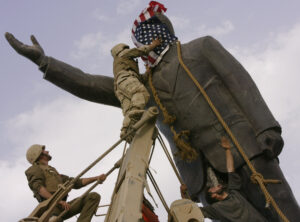


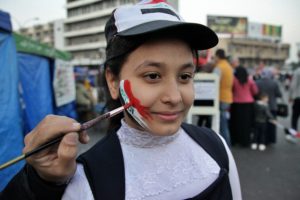
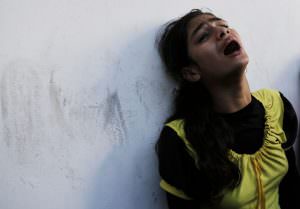
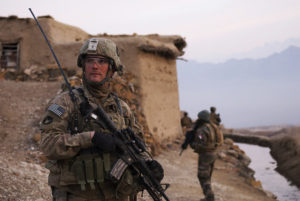

You need to be a supporter to comment.
There are currently no responses to this article.
Be the first to respond.